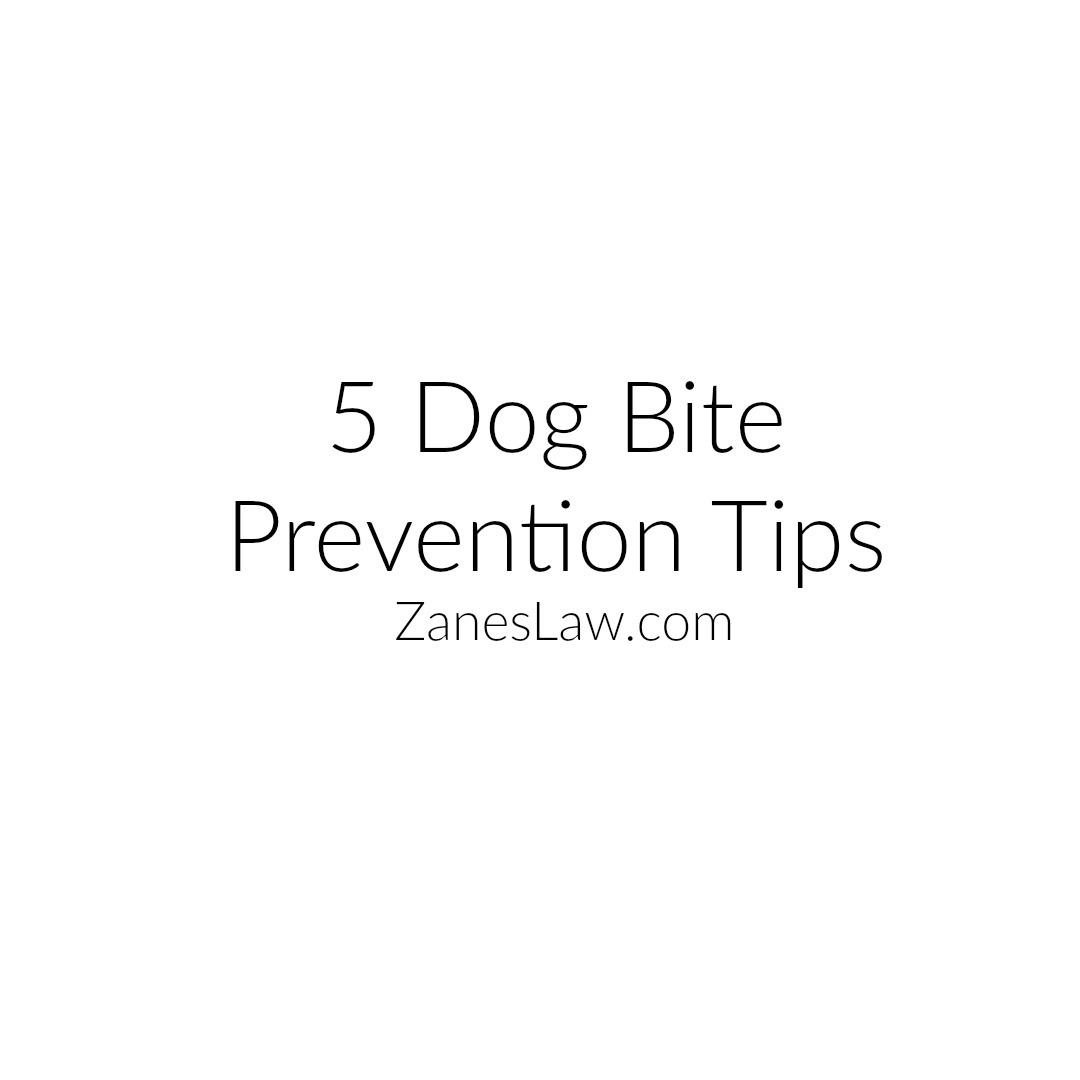Dog Bite Prevention – 5 Tips
As an injury attorney with offices in both Tucson and Phoenix, Arizona, and Seattle, Washington, my personal injury law firm has represented hundreds of dog bite victims on their injury claims. Through that process we have become extremely interested in dog bite prevention.
According to the Centers for Disease Control and Prevention, over four million Americans are victims of biting dogs each year. Of these, twenty percent receive bites that are significant enough to require medical attention. In addition, according to the CDC’s 2006 statistics, more than 31,000 people actually underwent reconstructive surgery as a result of being bitten by a dog.
Children are at most risk of being bitten by a dog. Specifically, children between the ages of five and nine. Men are also more likely to be bitten by a dog than women. The good news is that dog bites are largely preventable. It may surprise you to know that over half of dog-bite injuries occur at home with dogs that are familiar to us. Among children and adults, having a dog in the household is associated with a higher likelihood of being bitten than not having a dog. As the number of dogs in the home increases, so does the likelihood of being bitten. Adults with two or more dogs in the household are five times more likely to be bitten than those living without dogs at home.
Therefore, below are my five top tips regarding dog bite prevention, which will prevent you from being a dog bite victim.
- Before bringing a dog into your household:
- Do your research regarding which breed of dog is best for your family and your lifestyle. For example, if you work all day and no one will be home with the dog there are breeds that do better when left alone. If you have small children there are breeds that may be either too aggressive or too fragile to fit into your household. You want to find a dog that will fit into your family. When picking the correct dog. Research breeds on the internet and/or ask a veterinarian what breed is best suited to your lifestyle and household.
- Aggressive dogs are not suitable for households with children.
- If possible, spend time with a dog before buying it or adopting it.
- Be sensitive to cues that a child is fearful or apprehensive about a dog.
- Use caution when bringing a dog into a household with an infant or a toddler.
- If you decide to bring a dog into your home:
- Spay/neuter your dog (this often reduces aggressive tendencies).
- Never leave infants or young children alone with a dog.
- Don’t play aggressive games with your dog (e.g., wrestling).
- Properly socialize and train your dog.
- If an unfamiliar dog approaches you and you do not want to interact with it, do the following:
- Stop, stay still, and be calm.
- Do not panic.
- Do not make direct eye contact with the dog.
- Say ‘no” or “go home” in a deep, loud voice.
- Stand with the side of your body facing the dog. Facing the dog directly can appear aggressive to the dog.
- Slowly raise your hands to your neck with your elbows in.
- Wait for the dog to pass or slowly back away.
- If bitten or attacked by a dog:
- Put your purse, bag, or jacket between you and the dog to protect yourself.
- Yell loudly at the dog and make yourself look as big as possible in order to try to scare the dog, but do your best to not take an aggressive posture with the dog.
- If you are knocked down, curl into a ball with your head tucked in and your hands over your ears and your neck.
- Seek medical attention immediately if you are bitten by a dog.
The personal injury lawyers at Zanes Law focus on helping our clients who have been injured in accidents. To learn about dog bite prevention or our services please click on this link. If you have been injured in any way, please call us and we will do our best to help you just like we helped our many clients who have left us 5-Star Google reviews




